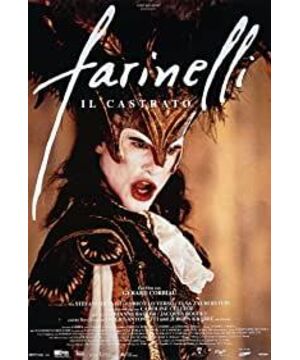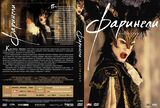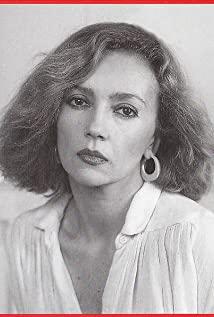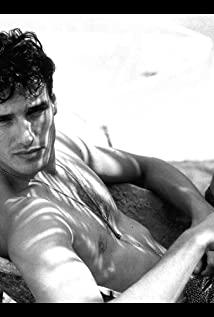Farinelli's Sorrow in
1994
, by Gerard. The film "Farinelli" co-produced by Italy, Belgium and France, directed by Galbio, opened a window for us, taking us back to the flamboyant and extravagant 18th-century European continent, and had a glimpse of the splendor of the peerless singer Farinelli.
Galbio is keenly focused on the castrato singer, allowing the dangerous and taboo subject to generate endless controversy. Many people think that Galbio has added too many unverifiable and erotic jokes in the video narrative, which has compromised the authenticity and artistry of the film to some extent. However, almost no one is not impressed by the director's precise control of the singer's music: delicate and solemn, which nurtured the desire for artistic emotional expression in the early classical period.
In order to keep his brother Carlo's voice, Ricardo, a mediocre composer, did not hesitate to perform palace torture on his seriously ill younger brother, and fabricated a huge lie about falling from a horse to deceive Carlo's trust. The real genius cannot be concealed by history. Carlo's powerful and beautiful singing won him the supreme honor of "Farinelli". He conquered the whole of Europe and sold out wherever he went. The Karowski brothers made a creed and shared everything—music, fame, lucid, even beauty. However, what seemed to be the most solid alliance was eventually disintegrated and disintegrated due to differences in musical concepts.
The scar left by his brother caused an extreme imbalance between Carlo's artistic ideals and life: during the day, he rode a tall horse, calling for wind and rain, playing the role of all the girls' dream lover Farinelli; at night, he took off his gorgeous robes and returned to In Carlo's body, licking the bitter fruit of loneliness and betrayal alone.
The soundtrack to Farinelli is almost unbelievably beautiful. In order to infinitely approach Farinelli's peerless singing voice, the sound engineer collected dozens of the world's top soprano, tenor and child's voice tracks, edited and synthesized through modern electronic music technology: to achieve a four-octave range span and long The extreme singing skills such as continuous high pitch for one minute are difficult to achieve today.
By chance, Carlo takes on a good trumpeter out of sympathy for the ridiculed castrat singer. Carlo's ultimate vibrato showed his superior talent in the high-pitched area, which was smoother than silk and clearer than a stream, conquering countless spectators in the market and the music master Handel who happened to pass by. He reigned supreme in the first world war, and the fame of "Farinelli" was deeply rooted in the hearts of the people.
Handel in the film is determined not to be a big-minded guru. In order to arouse the true emotion in Carlo's singing, or to avoid the series of misunderstandings and hatreds between the two, Handel threw down the harsh words of "you are only eunuchs, you can only exist for music", and put Riccardo's painstaking efforts The truth that has been concealed for many years is nakedly exposed in front of Carlo, who is about to perform. Carlo, who was dressed in red brocade and satin in front of the stage, remembered the silver-white horse's mane entangled in the nightmares he visited every night, and the flirtatious light-red flowers blooming in the white milk pool... It turned out that everything was self-deception. lie. For the first time, he removed Farinelli's mask and sang for himself. In "Let Me Cry", he trimmed the gorgeous decorative accents he was proud of, abandoned all dazzling performances that catered to the audience, and just said to himself, "You used the power of rape to take away the joy of my life forever. Now, I am in eternal pain, living in that kind of purgatory torture, God! Oh, have mercy on me, please let me cry..." The descending tones of the sighs are like walking on tiptoes in the heart of the listener. In the end, he got an aria that matched his devilish voice, and paid the price for it.
Good-bye, Farinelli, I have nothing to do with my success.
What Riccardo said was right, he made Farinelli; but it was also him who took away Carlo's originally perfect life.
At the end of the story, Farinelli became the king's royal singer, healing the king's heart with singing every night, and even summoning the sun for mankind with the clearest and sweetest music at the time of the solar eclipse. It was at the time of the solar eclipse that his brother Riccardo decided to commit suicide to make amends for his crimes against Carlo. Afterwards, the recovered Ricardo planted the seeds of love for the Carlos and made up for Carlo's eternal disability. It's an imperfect ending. Maybe years can heal all the sorrows, how much love and hate will eventually become a dream of Nanke, only hot art can live forever.
View more about Farinelli reviews











